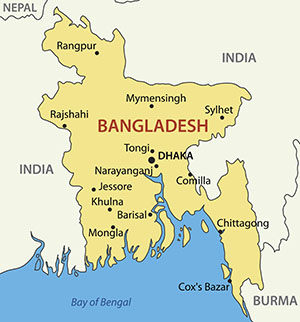Impact Evaluation of BRAC’s Nutrition and Early Childhood Development Program
 Malnutrition is one of the most serious global health problems. Stunting, wasting, and micronutrient deficiencies contribute to nearly 3.1 million child deaths annually. Advancing the knowledge base about the effects of nutrition and early childhood development (ECD) programs on nutrition outcomes is particularly important in Bangladesh. Although Bangladesh has established itself as an emerging economy with a vibrant growth rate and promising future prospects, the country has been less successful in combating malnutrition. BRAC, based in Bangladesh, and the largest international NGO in the world, has designed a large-scale nutrition program and a pilot ECD program to combat malnutrition.
Malnutrition is one of the most serious global health problems. Stunting, wasting, and micronutrient deficiencies contribute to nearly 3.1 million child deaths annually. Advancing the knowledge base about the effects of nutrition and early childhood development (ECD) programs on nutrition outcomes is particularly important in Bangladesh. Although Bangladesh has established itself as an emerging economy with a vibrant growth rate and promising future prospects, the country has been less successful in combating malnutrition. BRAC, based in Bangladesh, and the largest international NGO in the world, has designed a large-scale nutrition program and a pilot ECD program to combat malnutrition.
BRAC’s nutrition program is designed to reduce malnutrition among pregnant-lactating women and young children. Its goal is to reduce mortality and morbidity, particularly among poor and socially excluded populations. In some trial areas, the nutrition intervention is complemented with a comprehensive ECD intervention to improve knowledge of caregivers on how to stimulate the cognitive and physical development of children by, for example, emphasizing the importance of good parenting practices.
Study Design
AIR is partnering with BRAC’s impact assessment group in designing and implementing a mixed-methods research design. AIR and BRAC are implementing a two-stage evaluation design that starts with an impact evaluation with baseline and endline data collection and then follows with process evaluation to inform program design and implementation. To identify the impacts of the ECD program on child development and nutrition outcomes, we use a cluster-randomized controlled trial that includes 3,120 households in 78 treatment Mouzas (administrative districts) and 78 control Mouzas. To determine the impact of the nutrition program, we use a propensity score matching design that includes 1600 households in 40 beneficiary Mouzas and 40 comparison Mouzas.
